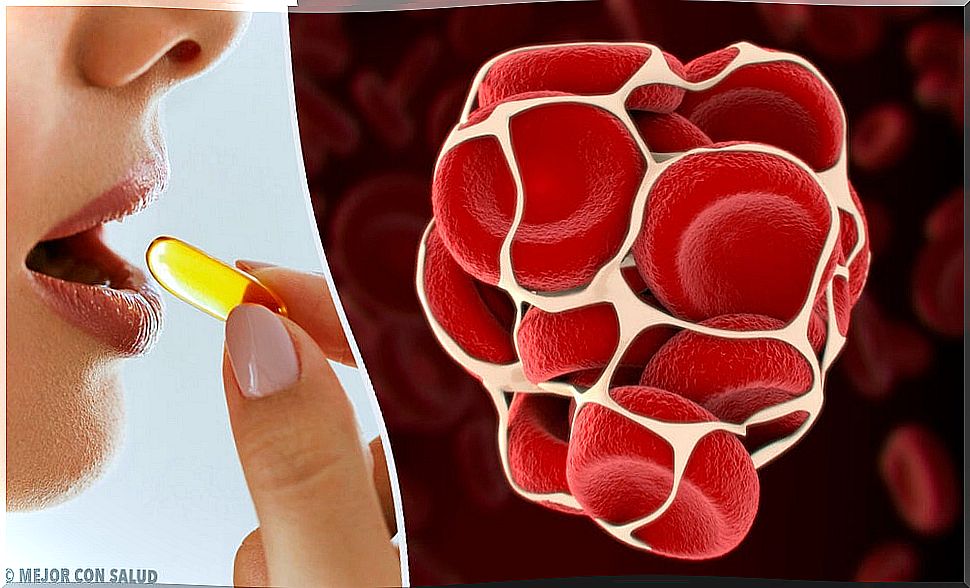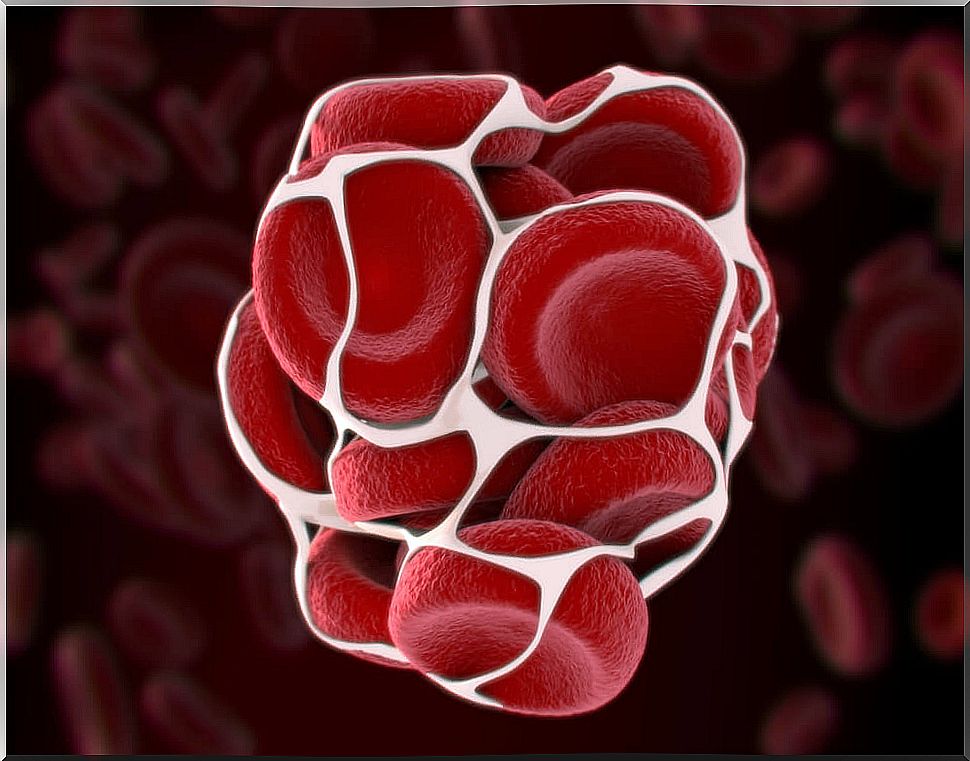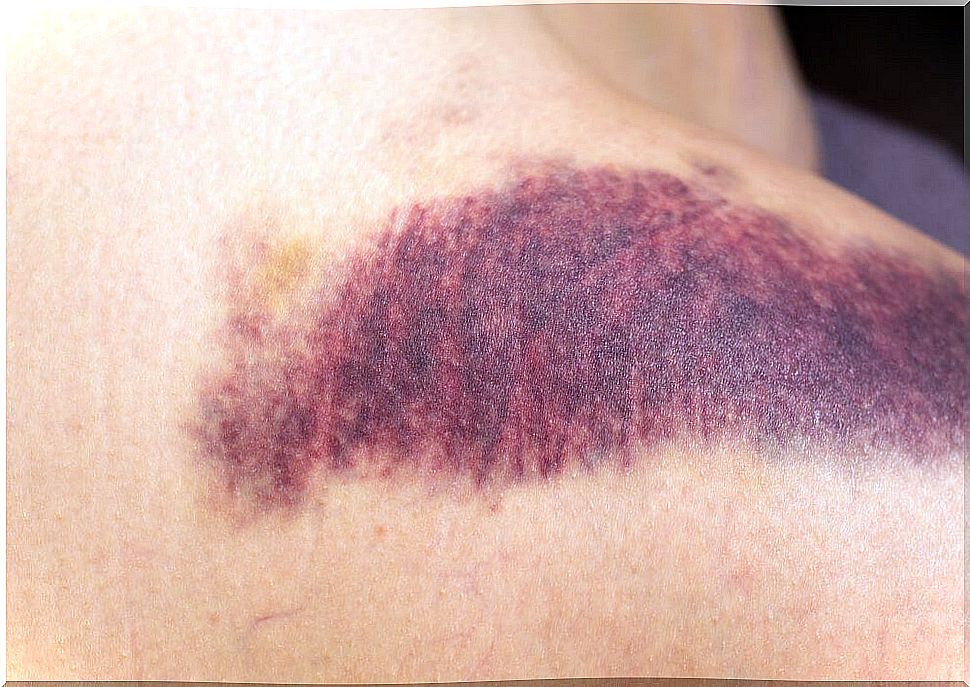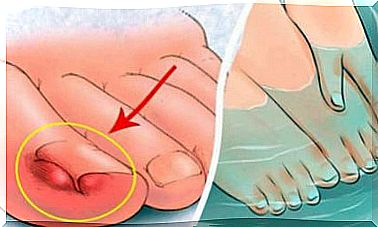4 Symptoms That You Are Not Getting Enough Vitamin K
Vitamin K plays a very important role in the synthesis of proteins linked to blood clotting, so its deficiency can cause a stroke, among other conditions.

You are working and suddenly your nose starts to bleed. Another day, you are putting on your shoes and you start to bleed in an unusual way. You do not know what happens, but the fact is that you notice that lately unusual events are happening to you in that sense. Well, you may have a vitamin K deficiency.
Have you heard of this one? Not? Well, you’re not the only one. There are other vitamins more popular than vitamin K, despite being as necessary as the rest. Therefore, we want to present it to you and for you to know the symptoms associated with a low consumption of it.
What is the role of vitamin K?

Those who take acenocoumarol (a well-known medicine called Sintrom) are very familiar with vitamin K, which is responsible for proper blood clotting. Those who consume the aforementioned medicine are prohibited from consuming vitamin K, since the objective of this medicine is to prevent an excess of density in the blood from occurring.
Thus, when your blood is too liquid, you run the risk of uncontrollable bleeding in the least expected moments, such as a visit to the dentist, the podiatrist, among others. And ultimately, you can have a stroke.
To avoid the above, it is recommended to consume an adequate dose of vitamin K. The good news, in this regard, is that there are many foods that contain it. To distinguish them, look for green foods, so it will be easy for you to find them.
What are the symptoms of low vitamin K intake?
When you are not getting enough vitamin K that your body needs, you may have one of the following symptoms:
1. Bleeding

As we mentioned earlier, when your blood is very liquid, you become more prone to bleeding. For example, a small cut while cooking could become a serious problem, since it would be very difficult to stop the bleeding.
In this sense, it is important that you check your vitamin K levels. Keep in mind that if you go to the dentist or undergo any minor intervention or surgery, it can be extremely complicated. Also, you cannot forget the possibility of internal bleeding, more or less invasive.
Regardless of their severity, these can constitute a very serious problem for your health and for your life in the long term.
2. Appearance of bruises
The most benign manifestation of a hemorrhage is a hematoma. This consists of the accumulation of blood as a result of bleeding. However, its frequent appearance can represent an advantage, in the sense that it can alert you to your low vitamin K intake.
There are people who complain that at the slightest blow, they get a bruise. Others claim that they do not even understand why they are presented, since they do not remember that something happened to them that could cause them; however, they are also formed.
Given this symptom, it is advisable to carry out a blood test to measure the levels of vitamin K in the body. Addressing a possible vitamin K deficiency in time will allow the condition, and therefore its symptoms, to be controlled more quickly.
3. Purpuric syndrome

It includes the proliferation of purple or red spots in certain areas, due to the accumulation of blood in them. Unlike bruises, these spots do not go away. The most frequent is that they appear in the ankles, since it is a critical place in terms of circulation.
If you suffer from this syndrome and even if it is impossible for you to get rid of the spots you already have, with a higher consumption of vitamin K, you will prevent them from continuing to reproduce. However, you should be very aware that they are an indication that they may turn into something more serious or delicate.
4. Excessive calcification in the joints

Vitamin K acts as a conductor by putting vitamin D in the right places. Consequently, when your vitamin K levels are low, vitamin D accumulates in the wrong areas, such as the joints and cartilage.
What does this mean? That too much calcium in these makes their movement difficult, while other areas become weak due to the absence of the necessary calcium. If the deficiency of vitamin K is very marked, sharp pain and general weakening of the skeletal system will appear.
Do you have any concerns? Consult with your doctor
Therefore, be alert to any of these symptoms, since although most are benign, they constitute a warning, a sign that your health may be at risk. Therefore, as soon as you notice any of these symptoms, it is recommended that you go to your trusted doctor and request a complete review.
Once the doctor has performed a check-up, follow his instructions to improve and have a good quality of life.









